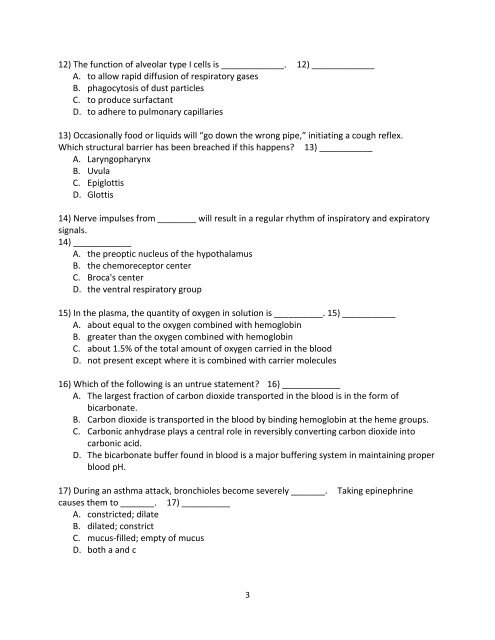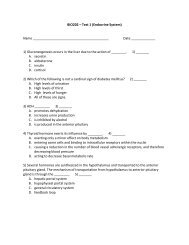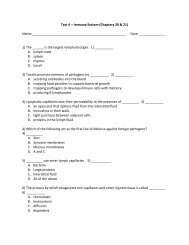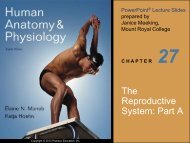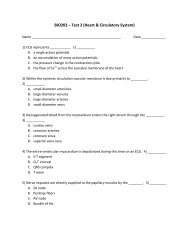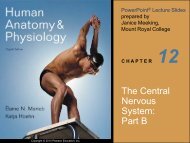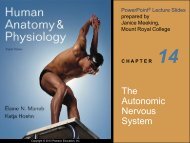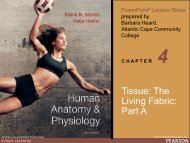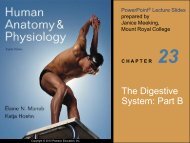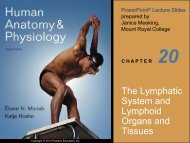Test 5 â Respiratory System - Next2Eden
Test 5 â Respiratory System - Next2Eden
Test 5 â Respiratory System - Next2Eden
Create successful ePaper yourself
Turn your PDF publications into a flip-book with our unique Google optimized e-Paper software.
12) The function of alveolar type I cells is _____________. 12) _____________<br />
A. to allow rapid diffusion of respiratory gases<br />
B. phagocytosis of dust particles<br />
C. to produce surfactant<br />
D. to adhere to pulmonary capillaries<br />
13) Occasionally food or liquids will “go down the wrong pipe,” initiating a cough reflex.<br />
Which structural barrier has been breached if this happens? 13) ___________<br />
A. Laryngopharynx<br />
B. Uvula<br />
C. Epiglottis<br />
D. Glottis<br />
14) Nerve impulses from ________ will result in a regular rhythm of inspiratory and expiratory<br />
signals.<br />
14) ____________<br />
A. the preoptic nucleus of the hypothalamus<br />
B. the chemoreceptor center<br />
C. Broca's center<br />
D. the ventral respiratory group<br />
15) In the plasma, the quantity of oxygen in solution is __________. 15) ___________<br />
A. about equal to the oxygen combined with hemoglobin<br />
B. greater than the oxygen combined with hemoglobin<br />
C. about 1.5% of the total amount of oxygen carried in the blood<br />
D. not present except where it is combined with carrier molecules<br />
16) Which of the following is an untrue statement? 16) ____________<br />
A. The largest fraction of carbon dioxide transported in the blood is in the form of<br />
bicarbonate.<br />
B. Carbon dioxide is transported in the blood by binding hemoglobin at the heme groups.<br />
C. Carbonic anhydrase plays a central role in reversibly converting carbon dioxide into<br />
carbonic acid.<br />
D. The bicarbonate buffer found in blood is a major buffering system in maintaining proper<br />
blood pH.<br />
17) During an asthma attack, bronchioles become severely _______. Taking epinephrine<br />
causes them to _______. 17) __________<br />
A. constricted; dilate<br />
B. dilated; constrict<br />
C. mucus-filled; empty of mucus<br />
D. both a and c<br />
3


